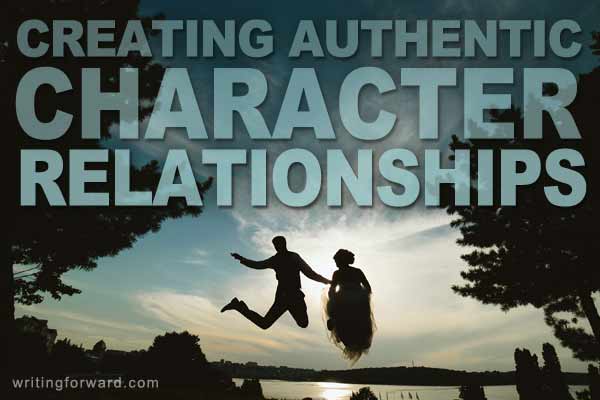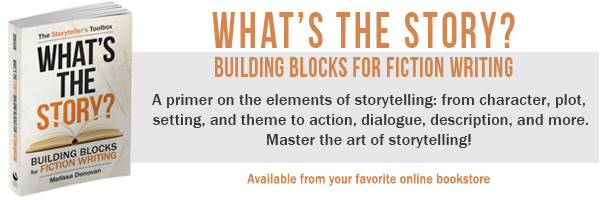As storytellers, we often look for ways to make our characters as lifelike as possible: we give them internal struggles, external goals, difficult challenges, and hard choices to make, all while raising the stakes and doling out consequences for every action our characters take.
Today let’s examine an oft-overlooked element of storytelling: character relationships.
I recently read a novel — a very good novel with fully realized characters, an interesting plot, and a compelling setting — but after I finished the book, I realized that the character relationships weren’t fully developed. Almost every character in the story intrigued me, but their relationships didn’t rise to a level that felt authentic. The reader was asked to believe that friendships were forming based on minimal interactions without much depth.
Relationships Are Complicated
Relationships are not easy to depict, because they are complex, complicated, and often difficult enough in real life — let alone in a made-up story. People in our lives will inevitably disappoint us, impress us, hurt us, and help us. And it takes time for bonds to develop and strengthen — bonds that could be shattered in an instant of betrayal.
The relationships in a story will resonate best if they reflect reality — if they are full of the depth and complexities, the ups and downs, that we experience in our own real-life relationships.
Plenty of stories do this well. In Harry Potter (aff link), three kids meet on a train, and then we watch their friendships flourish over the course of seven books, but not without the occasional setback. Every relationship in the story is earned, because we see the relationships forged over time. That’s what makes them believable. That’s what makes them resonate. They feel real.
Relationship Arcs
In storytelling, everything is about arcs — how things change over the course of a story. Every significant event in a story causes a change, big or small. And relationships change, too. Characters grow closer. They grow further apart. They fall in love. They become enemies.
But there must be conversations (dialogue) and events that cause these shifts in relationships.
Of course, romance writers know this: making character relationships feel genuine is their bread and butter. But even outside the romance genre, relationships can drive an entire story, providing the guiding light that leads the characters to their fates.
The Elements of Relationships
What happens in a relationship?
People meet and they hit it off. They get together again and bond over a shared experience. They swap secrets. They grow closer. They share meals, good times and bad. But then someone makes a mistake. Someone else gets hurt. The relationship suffers a major blow. Will the wound heal? Will they reconnect?
Or maybe there’s friction every time they meet. One of them always says the wrong thing. The other is always in a bad mood. The timing is off. They have nothing in common. They can’t get along. But they’re stuck with each other.
Relationships are full of fascinating dynamics: intimacy, betrayal, tension, loyalty, disappointment, camaraderie, and so on. Characters (and casts) that navigate through these dynamics in way that feels genuine will feel real and keep readers interested and invested.
Character Relationships
Stories are full of many types of relationships: friends, family, lovers, enemies, acquaintances, and colleagues. Some world views hold that all that matters in the end are the people who’ve touched our lives. This may not be everybody’s view, but memories are often less about where we were and what we were doing than who we were with. And stories often leave the same impression: readers may not remember every twist and turn of a plot, but they remember the characters. They remember the relationships.
That’s why it makes sense to spend a little time examining the character relationships in your story. Do the relationships change over time? Do they face ups and downs? Do they feel authentic?
What are some of your techniques for creating rich, realistic character relationships? Share your thoughts by leaving a comment, and keep writing!






Thank you for this wonderful article about character relationships. I’ve bookmarked it so I can come back and read it again.
You’re welcome! I’m glad you found it useful.